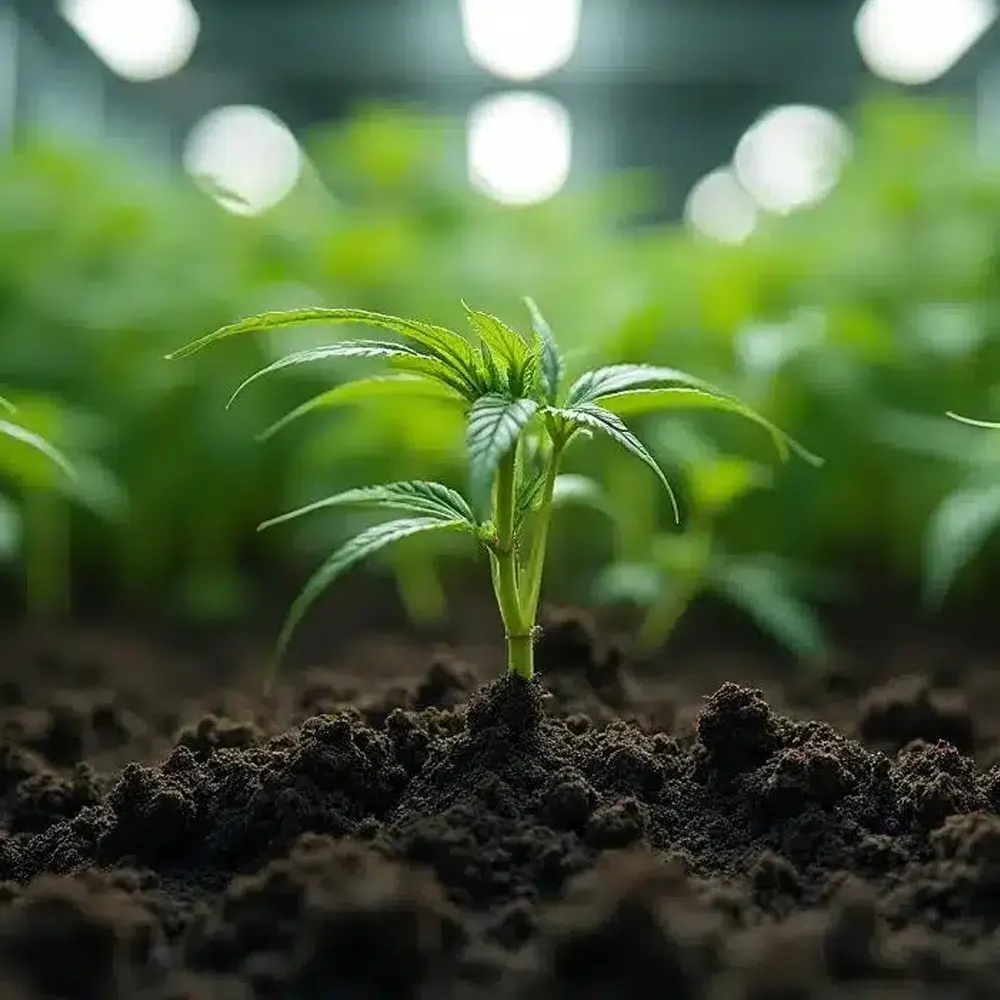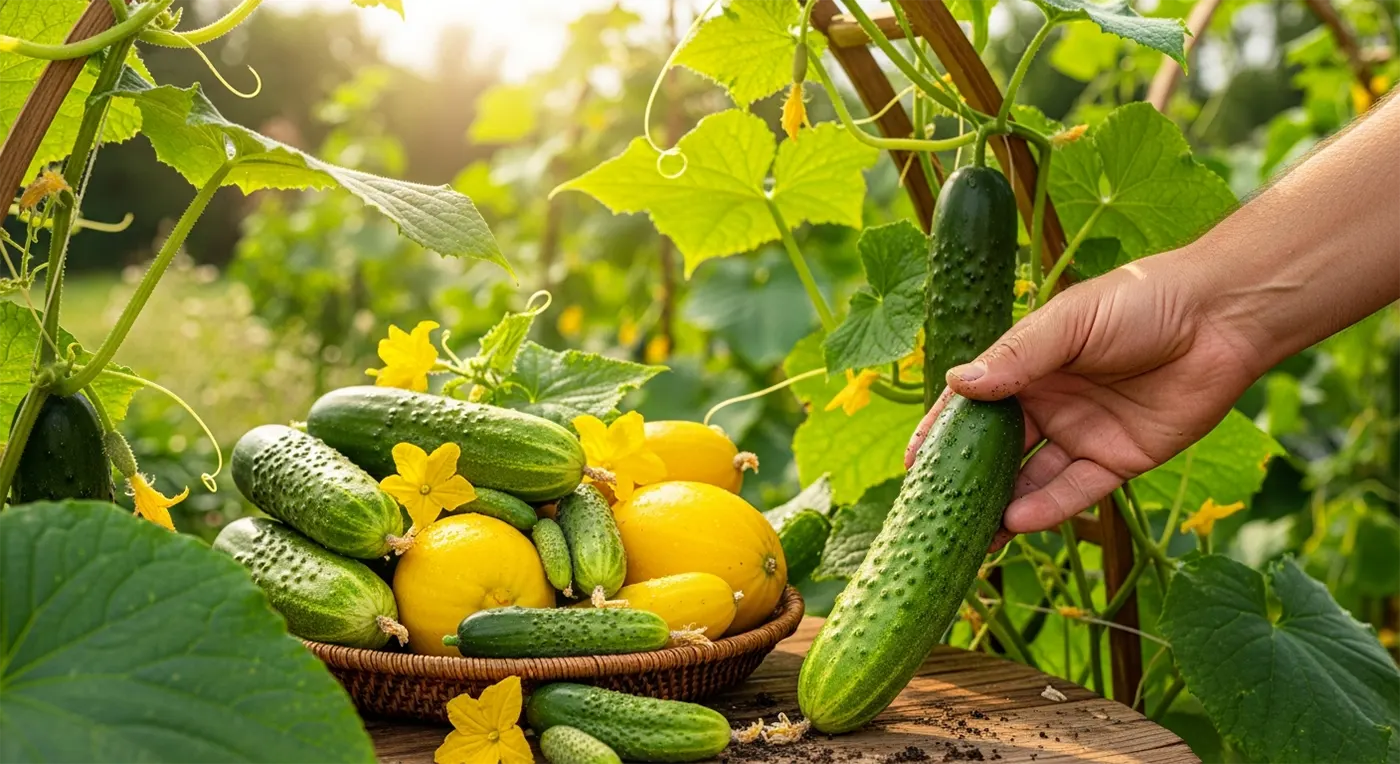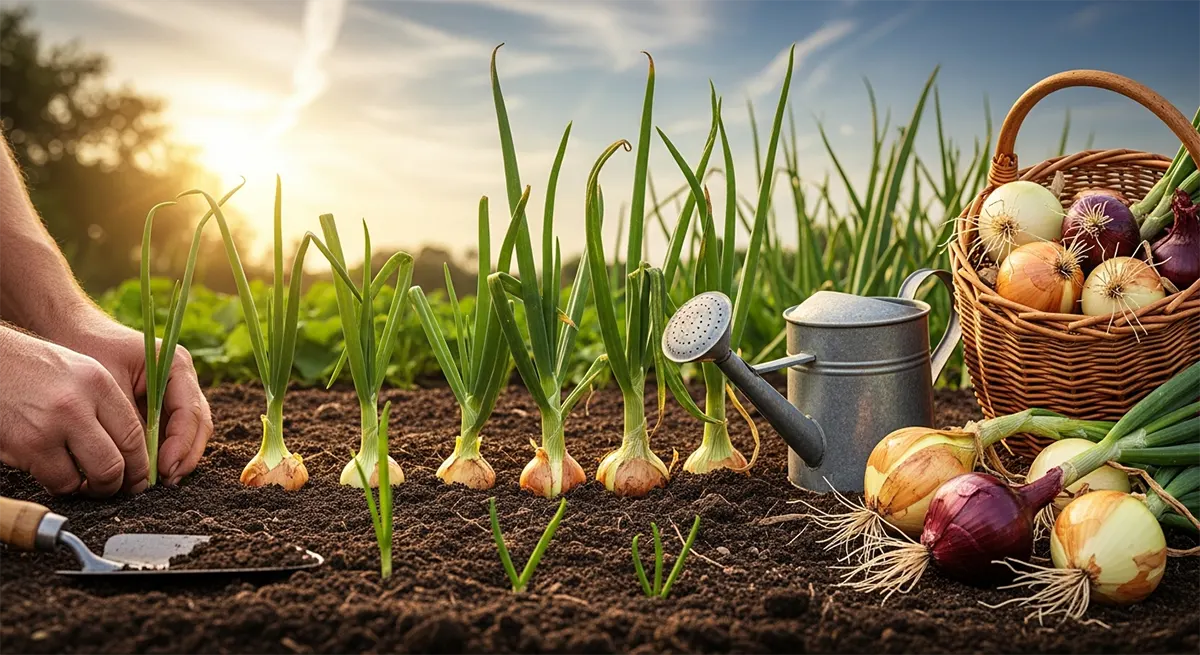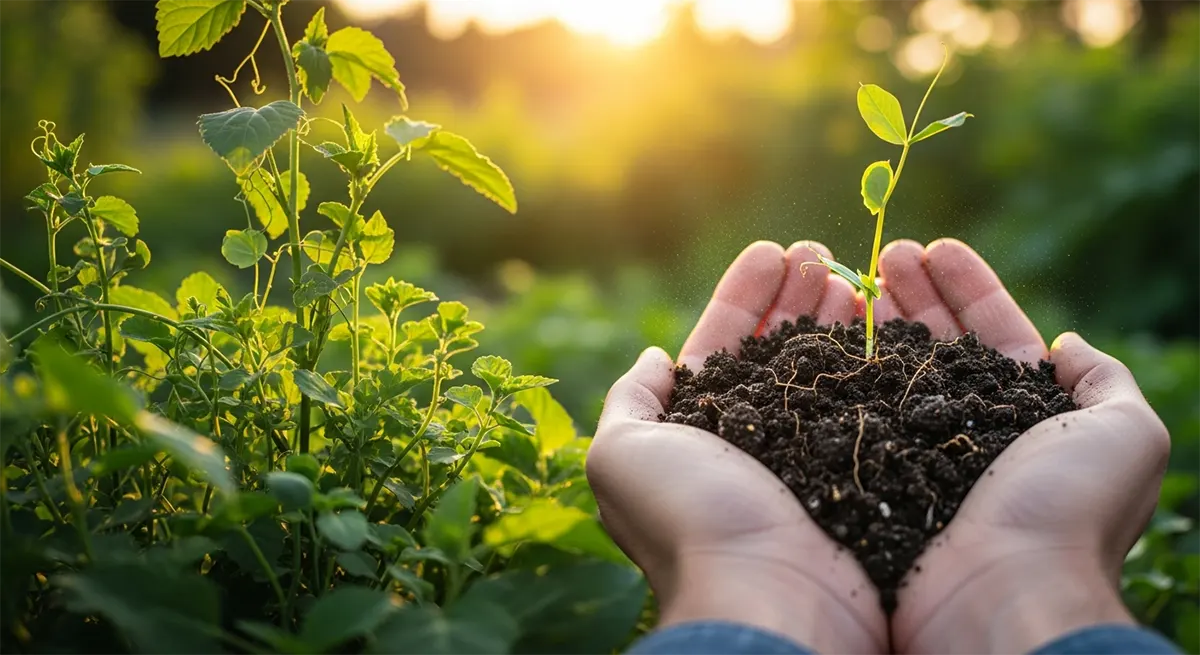table of contents
What is cannabis?
Cannabis can also be called marijuana; it is a kind of plant with many functions. With non-chemically hallucinogenic ingredients, it is often used as a medicine, or some drug addicts use it as drugs. Therefore, this plant is really well-known to humans.
Introduction to Organic Cannabis Cultivation
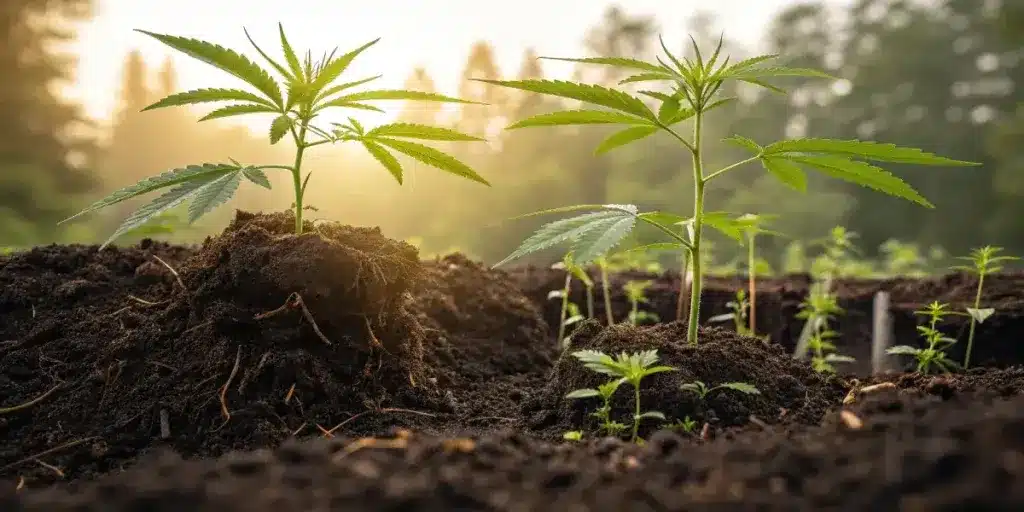
Cannabis has been cultivated for many years, and growing cannabis has changed a lot recently. More and more growers and consumers want their plants cleaner, safer, and friendly to the environment. That’s why organic cannabis is becoming more and more popular for both home gardens and large-scale businesses.
Organic farming puts the health of the soil, natural nutrient cycles, and biological diversity at the top of its list of things to do. What happened? Plants that are healthier, terpenes that are more varied, and end products that both medical and recreational users who want a pure, chemical-free experience will like.
This guide will show you everything you need to know about growing cannabis organically, from how to prepare the soil to how to feed your plants. We’ll focus on how to use organic fertilizers to improve growth, flavor, and yield.
Why use organic instead of synthetic?
Chemical pesticides and synthetic fertilizers may work quickly, but they can hurt the health of your soil in the long run and leave behind residues that you don’t want. These residues are a big safety and quality concern for cannabis, which is a crop that people often smoke or eat.
On the other hand, growing cannabis organically:
- Improves terpene expression, which makes the flavor and smell better.
- Helps microbes live and makes soil structure strong.
- Removes the chance of chemical residues in your finished product
- Encourages farming methods that are good for the environment and last long
If you want to grow cannabis at home or run a business, switching to organic inputs, especially organic fertilizers, is an important step toward making buds that are high quality and can be sold.
Best Conditions for Growing Cannabis
Cannabis grows best in certain conditions that need to be changed as it grows. Whether you are growing inside or outside, getting the right amount of light, temperature, and humidity is important for getting the best yield and quality.
Light: Cannabis will need 12 hours or 18 hours of light every day while it is growing. And it will need 12 hours of darkness every day while it is flowering.
Temperature: During the day, keep the temperature between 70 and 85 degrees Fahrenheit (21 and 29 degrees Celsius). At night, it should be a little cooler. Extreme temperatures can slow down growth and lower the amount of THC made.
Humidity: Keep the humidity between 60 and 70 percent during the vegetative stage. To keep mold and mildew from growing, lower the humidity to 40–50% as the plant grows.
The health of the soil is the most important thing for organic growing. Healthy soil is a living ecosystem that has helpful microorganisms that break down organic matter and give your plants nutrients. Your cannabis plants will be stronger and healthier if you make sure the soil has the right conditions, such as good aeration, the right pH, and a lot of organic matter.
What Kind of Nutrients Do Marijuana Plants Need?
Marijuana is a kind of plant that needs a lot of nutrients, especially when it’s growing and flowering. The cannabis plant needs different nutrients during its different growing periods. What it needs is as below:
Nitrogen (N): If you’re vegetable farmers, you should know that nitrogen is very important for leaf growth.
Phosphorus (P): This is important during flowering because it helps buds grow and makes your yield bigger and better overall.
Potassium (K): Potassium is good for the health of all plants. It helps them fight off disease and helps flowers grow.
Cannabis also needs small amounts of calcium, magnesium, and trace elements like iron and zinc in addition to these main nutrients.
Choosing the Right Fertilizer for Cannabis
You can use either synthetic or organic fertilizers to fertilize cannabis. Synthetic fertilizers work quickly, but they can throw off the balance of nutrients in the soil and hurt the microbes that live there. Organic fertilizers are the best choice for cannabis growers who want the best quality. The reason as follow:
- Organic fertilizers can feed cannabis plants slowly and steadily, which keeps them from being burned by the fertilizers and gives them long-lasting benefits.
- They can make the soil healthier; this can make beneficial microbes grow, which helps cannabis plants absorb nutrients more effectively.
- Organic fertilizers, such as the materials made from seabird guano, seaweed, and compost, can help to improve the taste and smell of cannabis, which is really important for some people who care about the quality of terpenes and cannabinoids.
Why Use Rutom Bio. Organic Fertilizer?
If you’re looking for the right organic fertilizer for your cannabis plants, you can choose Rutom Bio. organic fertilizer. Why can you choose Rutom Bio.? for your organic cannabis cultivation?
- Certified by ECOCERT & CERES: Our fertilizers are globally recognized and certified, which can ensure the organic fertilizers can meet the highest standards for farming.
- Balanced NPK Formula: Our products have the right amount of nitrogen, phosphorus, and potassium (NPK), offering cannabis plants balanced NPK ratios from vegetative to flowering.
- Microbial Boosters: Rutom Bio. fertilizers have good microbes in them that make the soil healthier and help cannabis plants absorb more nutrients.
- No Chemical Residues: What can make sure is that, our fertilizers are made of organic matter instead of harmful chemicals, so your cannabis crop is safe and pure for customers.
- ECO-friendly: Our fertilizers are made from renewable resources such as seabird guano, plant compost, rapeseed meal, and soybean meal, which can improve the structure of the soil, and this will help your plants for a long time.
How to Fertilize the Cannabis?
In order to make your cannabis plants get the right nutrients at the right time, you’d better make a feeding schedule. We will show you the simple guide to feeding your cannabis plants in an organic way:
- Seedling Stage (Weeks 1-2): Just like other plants, cannabis plants don’t need many fertilizers in the first few weeks. We just need to make sure that the soil has a lot of organic matter, like compost or worm castings.
- Vegetative Stage (Weeks 3-6): Cannabis needs more nitrogen during the vegetative stage because it can help to grow leaves and stems. Ruom Bio. Organic Fertilizer is perfectly suitable for this stage with a balanced NPK formula.
- Flowering Stage (Weeks 7-10): When cannabis plants start to flower, it’s time to feed the plants with more phosphorus to help buds grow. Rutom Bio. has the right nutrients to help buds grow strong and healthy.
Conclusion
Growing cannabis plants organically isn’t just a trend, it’s a promise to quality, sustainability, and purity. Using certified organic fertilizers like Rutom Bio. Organic Fertilizer will give your plants the nutrients they need without adding any harmful chemicals or other substances. As more and more people want organic cannabis, growers who use environmentally friendly methods will see benefits for both the environment and their bottom line.
FAQs About Organic Cannabis Cultivation
1. Is it possible for cannabis grown without chemicals to produce as much as cannabis grown with chemicals?
Yes, if you take care of it right, organic cannabis can give you yields that are as good as or better than those of chemically grown cannabis. The right organic fertilizers and healthy soil help roots grow strong and increase the amount of terpenes, which leads to better quality and higher yields over time.
2. What type of soil is best for growing organic cannabis?
The best soil is light, drains well, and has a lot of nutrients. Organic cannabis grows best in soil that has a lot of organic matter (like compost or worm castings) and a pH level between 6.0 and 7.0. Rutom Bio. Organic Fertilizer can help the soil become more fertile and encourage more microbial activity.
3. Is it better to use organic cannabis for medical purposes?
Yes. Organic cannabis doesn’t have any chemical residues or synthetic pesticides, so it’s a safer choice for medical users who are sensitive to these things. It also usually has more terpenes and secondary cannabinoids, which make the medicine work better.
4. How often should I give my cannabis plants organic fertilizer?
How often you feed depends on the product. You can use Rutom Bio. Organic Fertilizer every 2 to 3 weeks during the vegetative and flowering stages, for instance. Always stick to the feeding schedule that the manufacturer suggests, and watch how your plant reacts.
5. Is it harder to grow cannabis without chemicals?
Organic farming takes more planning and care of the soil at first, but it gets easier as the soil gets healthier. Using high-quality inputs like Rutom Bio. Organic Fertilizer makes things easier and helps keep the balance of nutrients naturally.

